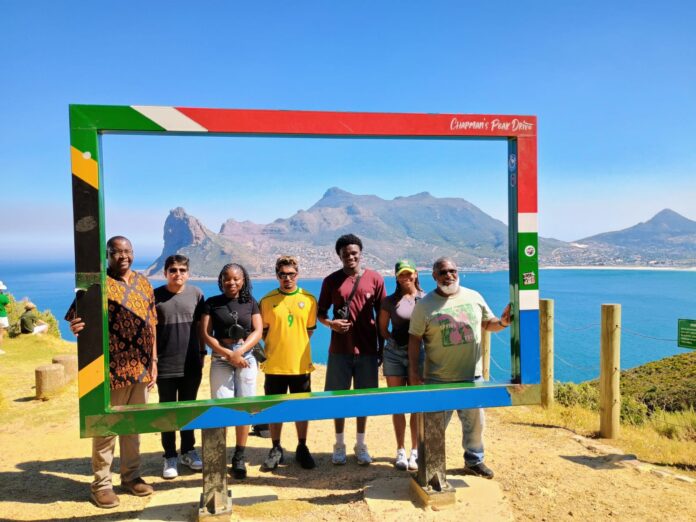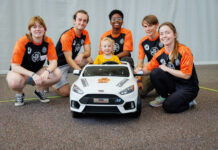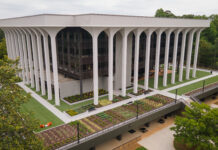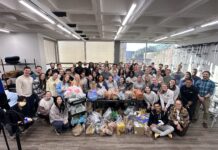A small group of Mercer University faculty and professors traveled to South Africa with a plan and quickly pivoted to meet needs expressed by the community. During the third annual spring break trip to Cape Town, their main focus was teaching job and interview skills to local women.
Dr. Donald Ekong, associate professor of computer engineering, and Dr. Stephen Hill, associate dean and associate professor of mechanical engineering, led four engineering students and one liberal arts and sciences student on the study abroad experience. Dr. Sabrina Walthall, professor of science in the College of Professional Advancement, coordinated the service-learning aspects of the program and provided online support from afar.
The Mercerians held workshops at the Philisa Abafazi Bethu Women and Family Centre for about a dozen women who were re-entering the workforce or trying to elevate their businesses. They worked on public speaking, interviewing, resume writing and basic computer skills, including how to use artificial intelligence to enhance a resume. Students saw the women grow in their confidence, Dr. Hill said.
“What really worked and why it worked was because our young people really bonded,” he said. “It was very obvious how quickly they bonded. Something we talked about before going there was making that personal connection. Once you make that personal connection, everything else becomes easy. It was very nice to see the interaction.”
The Mercerians also taught basic computer and coding skills to 17 children at an after-school program at the center, Dr. Ekong said. Initially, the Mercer group was going to split their time between working with these children and the women, but they ended up focusing more on the latter after realizing their career development needs.

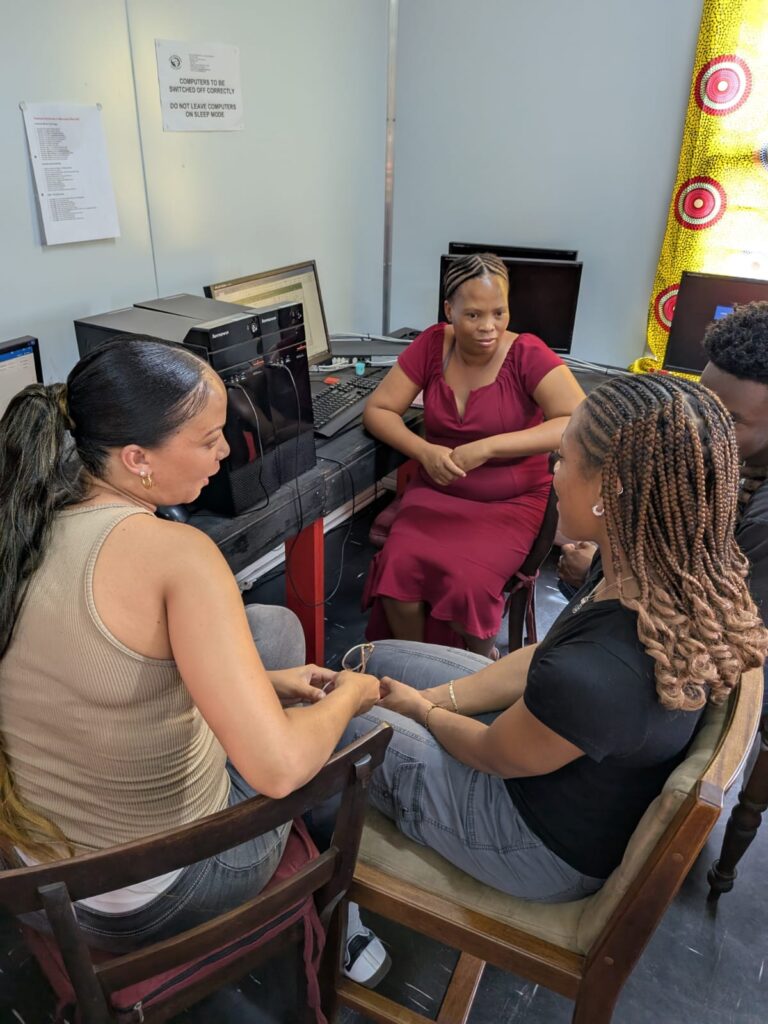
“I think it was really wonderful to see people from different cultures getting together and sharing about their different experiences,” Dr. Ekong said. “All the ladies at the center were really interested to know about the lives of the students. That cross-cultural exchange was very important to both the students as well as the ladies at the center and the elementary students who came for the after-school program.”
In addition, the leader of the center requested an app for area residents to report gender-based violence, so Dr. Ekong and students in his app development course this semester are working on the prototype now. The app will be refined over the summer, and the goal is to make it available in app stores by spring break 2026, so the Mercer group can teach residents how to use it. After the 2024 trip, Mercerians created an app through which missing children can be reported, and the team will conduct a Zoom training session on the app with Philisa Abafazi Bethu staff in the future.
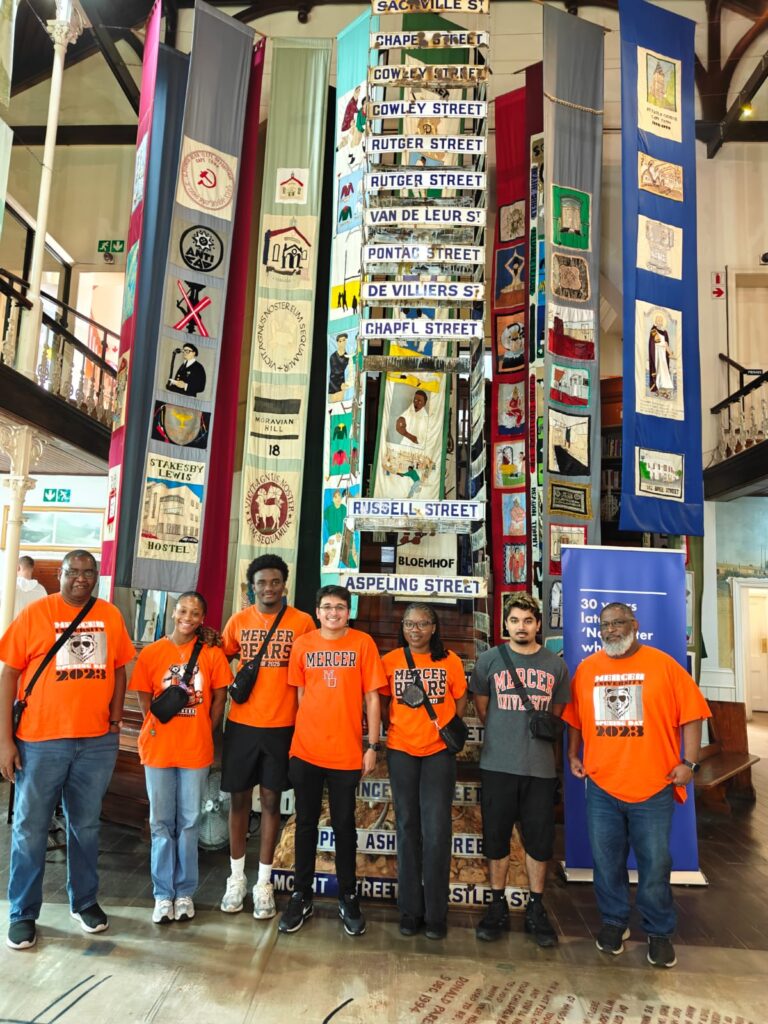
Dr. Walthall said adapting plans during some portions of the trip gave students the true service-learning experience.
“Something that I really try to get the students to understand before we leave is that we’re there to service the needs of the community,” she said. “When we get there, the plan could change because the needs of the community have changed. I’m really happy that our students were already prepared for the pivot. When you’re doing service-learning, it is to be of service. It is to take what you know and to serve the community you’re going into and not to put them in your box, but place yourself as a student in their box.”
The students gave a presentation on their experience during Mercer’s Breakthroughs in Engagement, Arts and Research (BEAR) Day on the Macon campus on April 11, and they are combining their reflections into a collaborative journal article that they will submit to the Undergraduate Journal of Service Learning & Community-Based Research, Dr. Walthall said.
This was the first study abroad experience for Abiola Soboyejo, a sophomore biomedical engineering major. She said she was moved to participate in the trip after hearing the professors talk about their work in South Africa during the study abroad fair earlier this year.
She is considering a career in higher education and said the trip gave her hands-on experience teaching both children and adults and adapting to the needs of a situation.
“I feel like it really helped me when it comes to professional and personal development,” she said. “I’m very grateful for the University and for the professors for making the service-learning trip so enjoyable, so powerful, so knowledge-filled. I’m excited to participate in even more service-learning opportunities in the future. I’m seeing the importance of not just helping your country but all over the world.”


